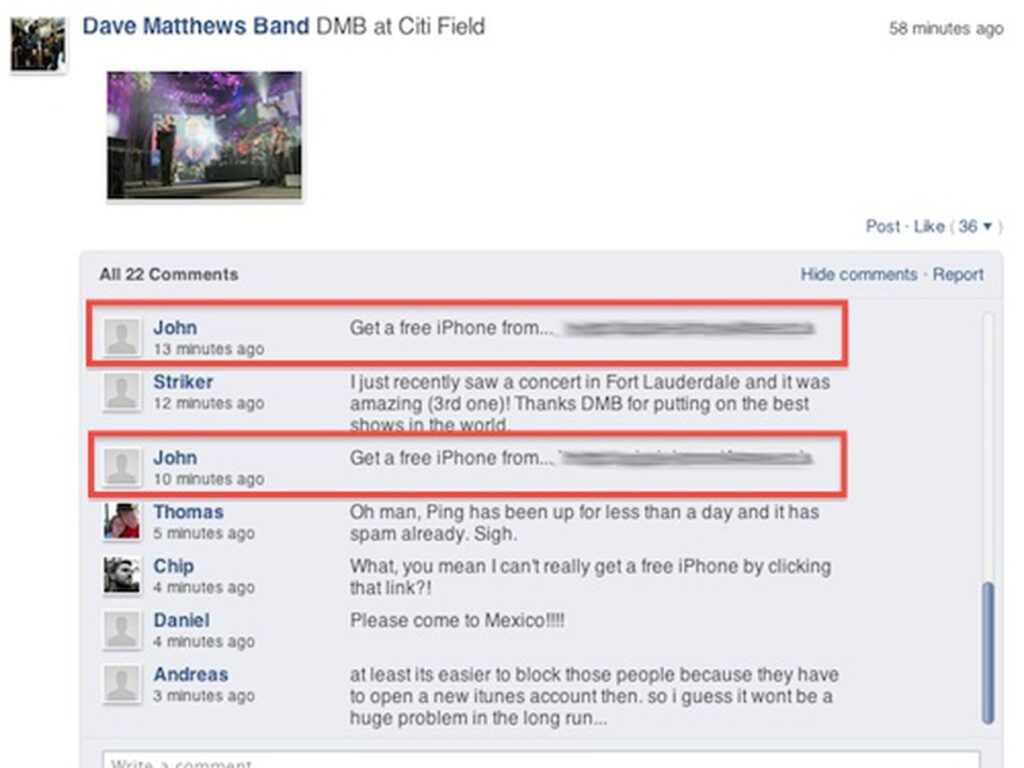AppleInsider | RIM, Nokia respond to Apples “Antennagate” press conference
Clearly, Steve Jobs is pissed. I would be, too. You pour thousands of hours collectively into a project like this and you want people to just use the damned thing, enjoy it, and have it change their lives on some level. That the media has churned up such a storm over this issue has got to be not-a-little-bit frustrating.
Apple’s media materials are always top notch, and what they produced highlighting the antenna design process at Apple, the tour of the inner sanctum of antenna design on campus, meet the standard. They included videos on apple.com and in the conference demonstrating the exact same signal loss on previous generation iPhones, along with phones from Nokia, Blackberry, HTC, and Samsung. Hold the phone in just the right way, signal drops. In fact, as Josh pointed out in the linked piece over at Apple Insider,
In June, Nokia’s official blog poked fun at the iPhone 4 “death grip” issue. The post included a variety of pictures showing a range of grips, encouraging consumers to feel free to hold their Nokia device any way they like without suffering any signal loss.
Users of the site then posted links to videos showing signal loss on several of Nokia’s handsets, as well as instructions from a Nokia manual warning users “to avoid touching the antenna area” and that “contact with antennas affects the communication quality.”
I waxed sarcastically on Twitter that Verizon’s cheeky attitude toward this antenna thing would bite them in the ass. I’m bummed the prediction isn’t wholly accurate in that I didn’t use Nokia as my case point. That would have made me far more prescient. At least someone looks foolish here. It’s never really smart to publish material dragging your competitors through the mud on untested, unconfirmed reports.
Which is why I’m on the fence about Apple doing just that in this case, dragging these other manufacturers into the ring with them on this issue.
As uncharacteristic as it is, I’m not sure they had another choice. This is a PR disaster. It’s a disaster specifically because it’s a nominally interesting story that has been spun out of Apple’s tight control, not because there is any more or less scandal to it. Their response strategy of choice is clearly to soften by deflection — get us all thinking about these other guys so we’re not so focused on the iPhone 4 soft spot.
Apple’s biggest issue in this mess is completely self-created, and it’s not that they created a phone that has a major antenna flaw (we know there’s a flaw, I’m just saying that’s not the biggest problem here). It’s that Steve Jobs stood on stage for the iPhone announcement and choose to point out that the antenna design is legendary, revolutionary, incredible, and then showed the world exactly where the antenna is. The fact that the world media has been so focused on the antenna is a problem of Apple’s own making. Given the tone and timbre of the press conference, it’s clear that Apple knows this. Their own duct tape solution is to give out the bumpers for free. It’s payola for those who bought the phone, love the phone, and want to keep the phone in spite of their problems with connectivity.
The other manufacturers have come out pissed. Rightfully so, but it sure is hard to defend indignation in the face of video evidence. Apple knows this. So does Nokia, RIM, Samsung. Best case result of Antennagate is that we all get the phone of our dreams because of a renewed focus on better, smarter, clearer antennas from all these manufacturers. At least we know from their responses so far that the intent may be there to do it, if only because Apple just made the target in Cupertino that much bigger.
In TechCrunch’s follow up, Arrington makes an ironically apt comparison. Job’s coming on stage to give all this data of the reality of the ecosystem, that 30-day returns at AT&T is about 1.7% — down from 6% for the iPhone 3GS, is akin to Facebook execs coming out to talk about how people really aren’t jumping off the service as a result of Facebook Privacygate 2009-10. But for all those affected — punditry, gadget hounds, privacy advocates, the works — those affected are not likely to change their opinions based on reported data from the company. People who feel betrayed by Facebook will not come back to the service as a result of a press conference. And folks like Arrington will continue to be as venomous as ever of the iPhone.
Anandtech has been leading the charge with data-driven coverage of this whole mess. After the iPhone iOS 4.0.1 update which mixed up all the bar data display across iPhones, they posted some terrific graphs which compare the dBm mapping to bars displayed to cover just what has changed on the phone and how it will help to convey more clearly what level of coverage you might be able to expect in a certain area.
So then, as long as Apple is trotting out the dog and pony show about their antenna labs, where was this data from them? If Anandtech is able to produce such terrific analysis as an external party, it seems only natural to have even greater expectations of Apple. Just because the Blackberry or Nokia drops two bars has no effective comparison to the iPhone dropping two bars without those dBm comparables — they’re just bars, tiny pixels that (as far as I understand it) have little relation to actual connectivity at all. On TWiT 255, Jerry Pournelle and Spencer Webb remind us that on digital phones, bars mean little; that a more effective indicator would be a lightbulb. If it’s on, you have signal. If it’s off, you don’t.
[UPDATE: Dammit. Gruber and Aaron Swartz beat me to this little bit of wisdom. I hate being late to the party.]
I got my iPhone 4 the day before it launched. I’ve dropped one call. I was talking to my dad, and driving through an area at the top of Sylvan Hill on highway 26 in Portland. With my iPhone 3Gs, I’d drop calls there every single day. With the iPhone 4, I’ve dropped only one, in spite of regular use in that area. Other than that, the phone has absolutely out-performed all my previous iPhones. I have a bumper, but I rarely use it. Yes, I’ll likely go get the refund Apple is offering for it, just cause, you know, 30 bucks.
Still, my impression here is not that Apple has perpetrated some kind of crime on consumers. I really do believe that Apple is learning as they go along based on data they’re collecting in real time. This is a monster of their own creation and is more a result of the death grip they have on their own communications, testing, and public relations policies than anything else. It’s a trade-off, and if you’re going to build policy around secrecy, this is the no-win scenario you have to be willing to confront. Kobayashi Maru, indeed.


